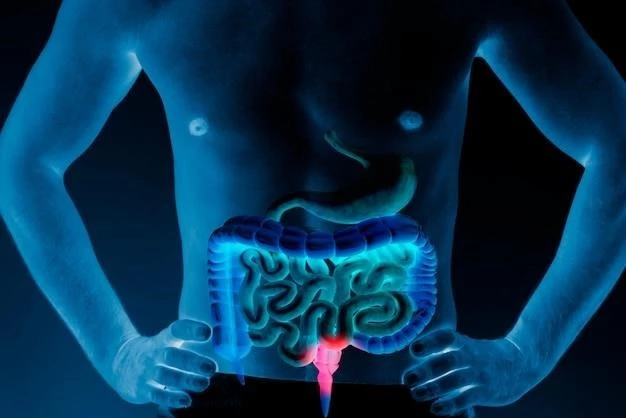Symptoms of Cystinuria
Seek medical attention if experiencing frequent kidney stones‚ abdominal pain‚ or blood in urine.
Overview of Symptoms
Cystinuria symptoms may include intense pain in the back or sides‚ nausea‚ vomiting‚ and a frequent urge to urinate. Kidney stones may cause sharp pain in the lower abdomen and groin. Blood in the urine‚ cloudy or foul-smelling urine‚ and frequent urinary tract infections can also indicate cystinuria. It’s essential to monitor these symptoms closely and consult a healthcare professional for proper diagnosis and management. Early detection is key to preventing complications associated with cystinuria.
Causes of Cystinuria
Genetic mutations leading to impaired kidney function cause cystinuria. Consult a genetic counselor for more information on inherited risks.
Genetic Factors
Cystinuria is primarily caused by mutations in genes responsible for the transport of cysteine in the kidneys. Inheriting abnormal genes from both parents increases the risk. Genetic testing can help identify these mutations and assess the likelihood of passing cystinuria to future generations. Understanding your genetic predisposition can guide treatment decisions and family planning. It’s advisable to consult a healthcare provider or genetic counselor for personalized insights and recommendations.

Treatment Options for Cystinuria
Management involves medications to decrease cystine levels and ensuring ample hydration. Consult a healthcare professional for personalized treatment plans.
Medication
Medication for cystinuria aims to reduce cystine levels in urine. Treatment may include thiol-containing drugs or chelating agents to prevent stone formation. Compliance with prescribed medications is crucial for managing symptoms and preventing complications. Consult with a healthcare provider to determine the most suitable medication regimen tailored to your specific needs. Regular follow-ups and monitoring are essential to track the effectiveness of the treatment and make any necessary adjustments.
Hydration
Proper hydration is crucial for individuals with cystinuria to dilute urine and reduce the risk of stone formation. Drinking plenty of water throughout the day helps prevent cystine crystals from aggregating and forming stones. Aim to maintain a consistent and adequate fluid intake to ensure urine volume remains high. In addition to water‚ healthcare providers may recommend specific fluids or electrolyte solutions to optimize hydration and improve cystine solubility. Monitoring urine output and adjusting fluid intake based on individual needs can significantly impact stone formation and overall kidney health.
Complications of Cystinuria
Untreated cystinuria can lead to kidney damage and chronic kidney disease. Early intervention is crucial to prevent long-term complications.
Kidney Damage
Severe cases of cystinuria can result in kidney damage due to recurrent kidney stones‚ leading to reduced kidney function. It’s essential to manage cystinuria effectively to minimize the risk of kidney complications. Regular monitoring‚ adherence to treatment plans‚ and a healthy lifestyle can help protect kidney health. Consulting a healthcare provider for personalized care and interventions is vital in preventing and addressing potential kidney damage associated with cystinuria.
Diagnosis of Cystinuria
Diagnosis involves urine tests to detect cystine levels and imaging studies like CT scans to identify kidney stones. Prompt diagnosis is key.
Testing Methods
Testing for cystinuria involves urine analysis to assess cystine levels. Imaging techniques like ultrasound or CT scans help visualize kidney stones. Genetic testing may also be recommended to identify specific genetic mutations associated with cystinuria. It’s important to follow through with all diagnostic procedures as advised by healthcare professionals to ensure an accurate diagnosis. Regular monitoring and testing are essential for ongoing management and treatment evaluation. Consult with your healthcare team for guidance on the appropriate testing methods tailored to your individual needs.
Cystinuria in Children
Early diagnosis and management are crucial in children with cystinuria. Consult a pediatric specialist for personalized care and treatment.
Pediatric Considerations
Managing cystinuria in children requires special attention. Pediatric healthcare providers can offer tailored treatment plans and monitor growth and development alongside cystinuria management. Parents should ensure children adhere to prescribed medications and hydration guidelines. Regular follow-ups with a pediatric nephrologist or urologist are essential to track progress and address any concerns early. Collaborating closely with the healthcare team can optimize outcomes and promote kidney health in children with cystinuria.
Dietary Recommendations for Cystinuria
Opt for a low-sodium diet to help reduce cystine levels in urine. Consult a dietitian for personalized dietary guidance and meal planning.
Low-Sodium Diet
Adopting a low-sodium diet is essential for managing cystinuria as high salt intake can exacerbate stone formation. Limit processed foods‚ canned goods‚ and salty snacks. Instead‚ focus on fresh fruits‚ vegetables‚ whole grains‚ and lean proteins. Cooking at home allows better control over sodium content. Reading food labels and choosing low-sodium alternatives can help in reducing salt intake. Discuss with a healthcare provider or dietitian to create a customized low-sodium meal plan that supports cystinuria management and overall health.
Research Advancements in Cystinuria
Stay informed on emerging treatments through clinical trials and research studies. Consult healthcare providers for the latest advancements in cystinuria management.
Emerging Treatments
Researchers are exploring novel therapies‚ such as new medications and innovative procedures‚ to enhance cystinuria management. Stay informed about potential breakthroughs in the field through reputable sources and consult healthcare professionals for guidance on participating in clinical trials or accessing cutting-edge treatments. Engaging with the latest research developments can offer valuable insights and options for individuals seeking advanced interventions in cystinuria care.
